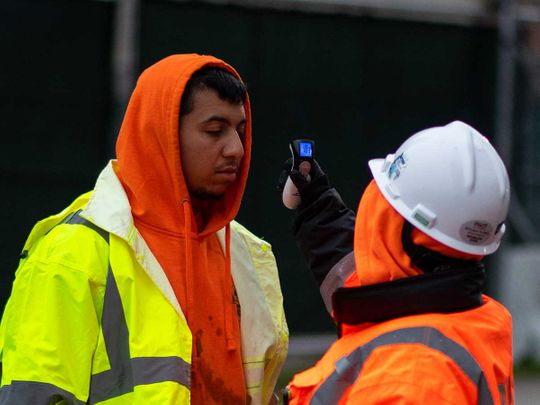
More than 1.6 billion people around the world are in immediate danger of having their livelihoods destroyed by the economic impact of COVID-19, according to the International Labour Organisation (ILO). That number makes up nearly half of the global workforce of 3.3 billion people.
Of the total workforce, about 2 billion work in what’s called the “informal economy” — often on short-term contracts, in unorganised sectors of developing economies or self-employment. This critical section of the global workforce suffered a 60 per cent collapse in their wages in the first month of the coronavirus pandemic, the ILO warned last week.
The sector-wise numbers are even more staggering: the deepening economic crisis around world has left more than 500 million businesses facing high risks of serious disruption. Most of these enterprises operate in the hardest-hit economic sectors, including 232 million in the wholesale and retail sectors and 111 million in manufacturing industries. As the ILO Director-General Guy Ryder put it: “For millions of workers, no income means no food, no security and no future.”
Governments in the worst-affected countries should follow a job-rich approach, backed by strong short-term employment policies and social protection.
With medical infrastructure stretched beyond capacity in almost every country, the unemployment crisis among the most vulnerable sections of society will invariably be compounded by a massive hunger crisis and lead to a debilitating health care nightmare unless the world acts now. The World Food Programme (WFP) has warned of a catastrophic famine in which more than 300,000 people are likely to starve to death around the world every day.
Amid these dire predictions, what could the international community and governments do to help?
Perhaps one silver lining of the COVID-19 pandemic is the shared realisation among countries and communities everywhere that we are all in this together — the virus doesn’t distinguish between borders, race, religion or economic status.
Therefore, it is not enough to simply tackle unemployment or hunger on a war footing only in developed economies — governments and institutions must actively support less-resourced countries whose medical systems struggle to cope and where people are already weak from hunger. The UAE has already taken a global lead in this, dispatching food aid, COVID-19 kits and essential supplies to dozens of countries from Yemen, Pakistan and the Philippines to Mauritania and Bangladesh. That sets a template for other countries to pitch in and help the hungry, the jobless and the sick around the world.
Governments in the worst-affected countries should follow a job-rich approach, backed by strong short-term employment policies and social protection. For many countries, international coordination on stimulus packages and debt relief measures will also be crucial to their recovery.
A combination of compassion and carefully calibrated economic reactivation can help win the war against COVID-19 and its devastating aftermath, not only for the 1.6 billion workers facing a grim future but also for the rest of the world.








